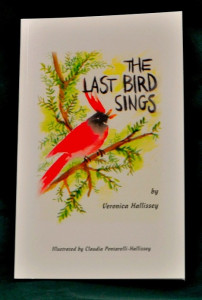 The clapboard house we lived in was neat. It had a mystery about it and even now memory brings forth details. Being of an ethnic background, there were certain things incompatible with today’s understanding. Things done in a certain way and values kept.
The clapboard house we lived in was neat. It had a mystery about it and even now memory brings forth details. Being of an ethnic background, there were certain things incompatible with today’s understanding. Things done in a certain way and values kept.
The cellar was where we lived our lives with meaning. Within the nooks was space for us all. The round belly furnace was the center and was near the eating area. Mother’s rocker was placed nearby and here she did her crocheting to the radio soap operas of Helen Trent and Ma Perkins. The table held most of us with the fallout on a small table father built. Generally we were on good terms. In
such close quarters it proved better for all of us for when arms went swinging, the innocent were caught in the crossfire.
My sister and I had our play area in one corner near the fruit cellar. But between the wall of the storage room, my brother nearest my age, (he 13, I-11)had his space. A long table braced by the wall held all his balsam models. They hung from wires at the ceiling and smelled wonderfully of wood and glue. This brother spent hours bent over his models with the sensitivity of a surgeon. The fine line of his particular schematic were followed diligently. The tissue paper used to cover the stick frames was zealously guarded.
The balsam was my undoing and his. I would sneak a piece now and again and happily munch on these rare and coveted pieces of wood. I can still feel my teeth gently smashing into them just for the pleasure of it. I would be on the lookout for these rare strips finding their way to the floor. But one day, in a fit of craving, I walked off with a section marked for major work. Possibly a wing or a side panel of something. When my brother found out what I had done, his anger took on proportions bringing on tears and loud voices from everyone. He was after me in hot pursuit ready for revenge. Suddenly my father appeared and the entire episode was no longer between siblings but a confrontation whose results stay with me yet.
My father brought out the cat o’nine tails. It was heavy and rubbery and I shuddered when I saw it. I don’t know where it came from but it was always there reminding us to behave. This day my father held it while he tried to hold onto my brother. I saw what was happening because of me and I screamed a scream that rang through the house and out the door and into the ethers and no doubt rings there still.
‘Stop it, stop it! Don’t hurt him! He is my brother! He is my brother!’
And my father no doubt did not realize how he turned into the bad guy, trying to protect his daughter from being killed by her brother. I do not remember if that black zombie ever came down on my brother’s fragile psyche but it did on mine symbolically. I shrink from violence to this day. I swallow injustices and insults and they lay like iron allies in the pit of my stomach.
The balsam act was that of a thoughtless but not malicious child. But the fear and horror I felt at the sight of my brother’s punishment was that of a god witnessing the violation of another god. I could not articulate this of course but I knew intuitively that this was what I saw.
And my words? Torn from deep within me, perhaps screamed lifetime after lifetime but elevating that portion of us residing in flesh. When violence is presented on the television screen, I hear myself again.
‘Stop it, stop it! Don’t hurt him! I love him. He is my brother! He is my brother!’
I walk away. The teacher said that out of the heart’s abundance the mouth will utter its words. Out of sheer frustration, out of love, our of hatred will come the heart’s abundance.
3 responses to “Excerpt from The Last Bird Sings”
e mail from Bill Hackett . . Everyone carries a thin patina of sophistication that covers the hurts and joys of life. Countries and villages do that too. Events can penetrate that patina like a cold chisel exposing our raw selves making us capable of great good or great hurt.
Bill, what amazes me is how childhood incidents can either halt the emotional growth of people or make them grow up quickly. Either way the trauma has consequences. Thank you for commenting.
So often in life the victim is punished for their reaction. Those suffering from righteous indignation can be provoked to rage while the perpetrators go unpublished. Children in my home town developed a rule. They held court where they asked, “Who started it?” This always got to the root of the problem for accountability and learning. Not to cause a negative reaction was always more important than to control one’s reaction. If the whole world had this one rule, many feuds might be stopped. Not until I was mature did I learn that controlling one’s reaction to provocation is just as important. This story also reminds us our victims might suffer unintended consequences of events we started.